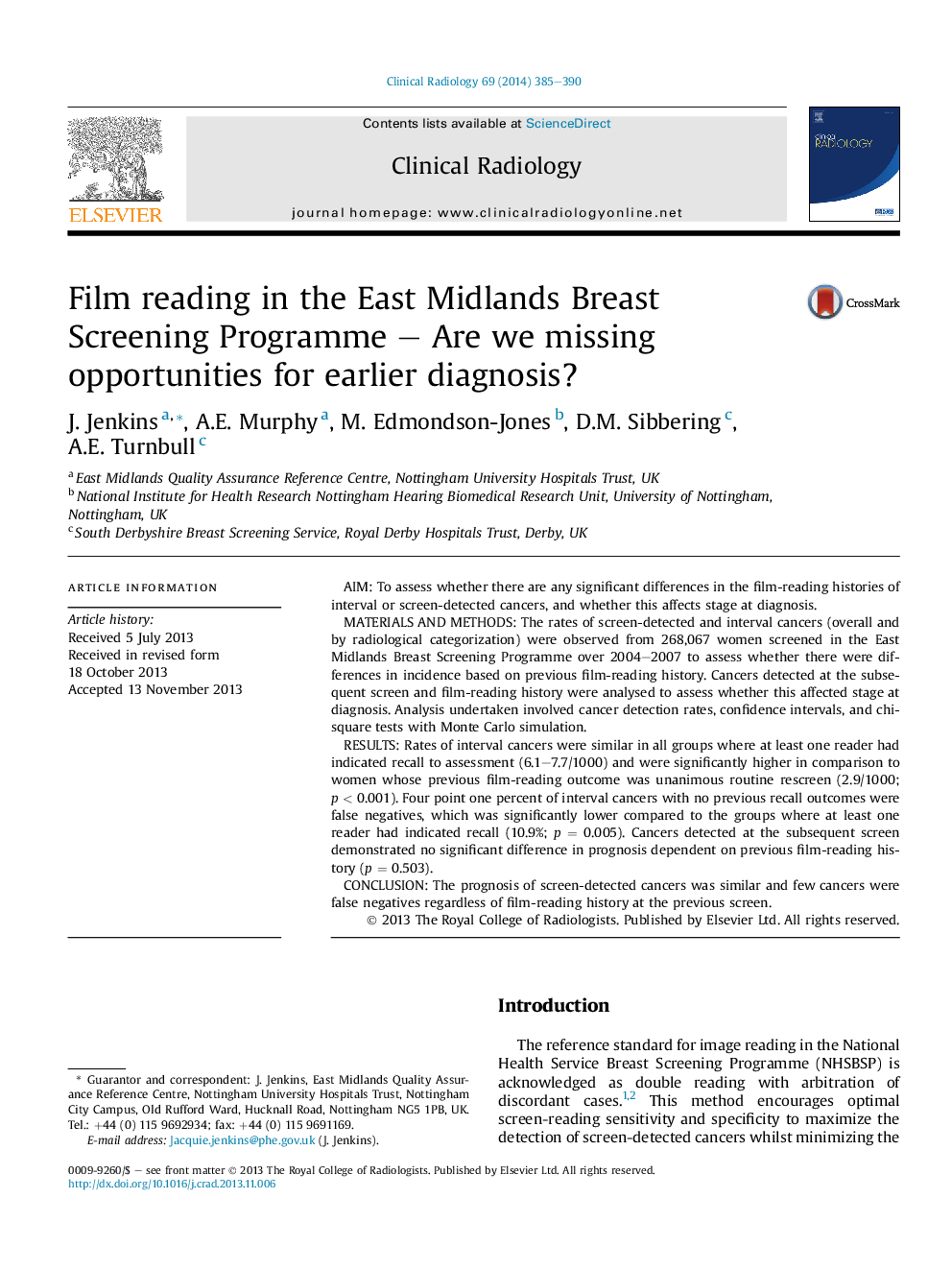| Article ID | Journal | Published Year | Pages | File Type |
|---|---|---|---|---|
| 3981627 | Clinical Radiology | 2014 | 6 Pages |
AimTo assess whether there are any significant differences in the film-reading histories of interval or screen-detected cancers, and whether this affects stage at diagnosis.Materials and methodsThe rates of screen-detected and interval cancers (overall and by radiological categorization) were observed from 268,067 women screened in the East Midlands Breast Screening Programme over 2004–2007 to assess whether there were differences in incidence based on previous film-reading history. Cancers detected at the subsequent screen and film-reading history were analysed to assess whether this affected stage at diagnosis. Analysis undertaken involved cancer detection rates, confidence intervals, and chi-square tests with Monte Carlo simulation.ResultsRates of interval cancers were similar in all groups where at least one reader had indicated recall to assessment (6.1–7.7/1000) and were significantly higher in comparison to women whose previous film-reading outcome was unanimous routine rescreen (2.9/1000; p < 0.001). Four point one percent of interval cancers with no previous recall outcomes were false negatives, which was significantly lower compared to the groups where at least one reader had indicated recall (10.9%; p = 0.005). Cancers detected at the subsequent screen demonstrated no significant difference in prognosis dependent on previous film-reading history (p = 0.503).ConclusionThe prognosis of screen-detected cancers was similar and few cancers were false negatives regardless of film-reading history at the previous screen.
